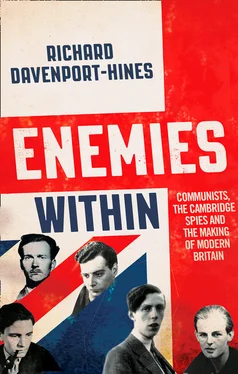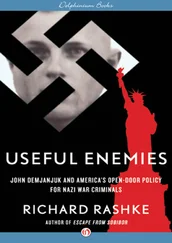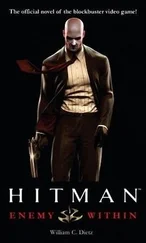Three months earlier, in Geneva, Oake had however introduced Pieck to another clerk in the Communications Department, John King. King had joined the Rhineland High Commission, a supra-national body based in Coblenz and supervising the Anglo-French occupation of the Rhineland, as a cipher officer in 1923. He was promoted to be personal clerk to the High Commissioner, the Earl of Erroll, in 1925. After Erroll’s death in 1928, he had a posting in China. ‘He is about fifty years of age, an Irishman who lived in Germany for about ten years and speaks German perfectly,’ reported Bystrolyotov. ‘A lively and inquisitive person … he draws a sharp distinction between himself with his cultured ways and the “pompous fools” of Englishmen.’ He was keen on the theatre and liked magic tricks. His salary was too small for his needs, he cadged drinks and tried to touch people for loans. 24
After dropping Oake, Pieck approached King to provide political information and weekly summaries for use by a Dutch bank. King agreed, and a secret bank account was opened for his remuneration. He received the codename MAG. King’s first delivery of secret material included an account of Hitler’s conversations with the Foreign Secretary, Sir John Simon, in March 1935. ‘His conviction that he is destined to bring about the moral rehabilitation of the German people after being crushed and humiliated by the treaty of Versailles’, Simon noted,
is very dangerous to peace in Europe, and it is all the more dangerous for being very sincere. And he is adored by those who follow him as no German Emperor has ever been adored. Hitler made it perfectly plain that he would never agree to enter into a pact of ‘mutual assistance’ with Russia. Communism, he declared, is the plague: unlike National Socialism, which he claims seeks only to embrace Germans, it is a contagious infection which might spread over all Europe and all Asia. He has stamped it out of Germany, and Germany is the barrier to prevent the pestilence coming westward. 25
King, like Oake, found it hard to obtain the Foreign Office daily bulletins which Oldham had been able to supply. Files, registers, the flimsy papers on which decrypts were scrawled – all were now guarded by the men who had responsibility for them. Any official found in a part of the department where he had no business was challenged. In order to justify his frequent visits to London, Pieck started a flimsy cover business called the Universal Barter Company. He then devised a better front after Oake had introduced him to Conrad Parlanti, with whom Oake often commuted by train from Herne Bay to Victoria station. Pieck suggested that he and Parlanti should go into business together as shopfitters. Among other commissions, Pieck and Parlanti revamped the shop-window displays at Marshall & Snelgrove’s department store in Oxford Street. At Pieck’s insistence Parlanti rented offices at 34a Buckingham Gate, close to Victoria station but also a few minutes’ stroll across St James’s Park from the Foreign Office. Parlanti was puzzled by Pieck’s insistence on leasing these offices, which were a secret amenity for spying rather than for the shop-window design business. Pieck kept a floor there for his own use, with one room which was always locked. King could walk over from Room 22, let himself in with a key and draw the curtains to indicate that he had left papers to be photographed in the locked room. Buckingham Gate was only a small deviation from King’s homeward route to Flat 9, St Leonard’s Mansions, Smith Street, Chelsea. Copies or originals of the documents were collected from Buckingham Gate by Brian Goold-Verschoyle, a communist electrical engineer and Comintern courier. The more important material was telegraphed to Moscow from the Soviet embassy.
Parlanti eventually picked the door lock when Pieck was away. Inside the mystery room he found a Leica camera fixed to photograph articles on a table. When he confronted Pieck, he was told that the Leica was for photographing ‘dirty pictures’. On another occasion Parlanti saw Pieck receive documents typed in red from a man in the lounge of the Victoria Hotel in Northumberland Avenue, off Whitehall. Pieck invited him to visit The Hague, but then made a show of being suddenly called to Germany. As Parlanti told MI5 in September 1939, ‘Mrs Pieck began very soon to make love to him, in order, as he is now convinced, to get him to entangle himself. He resisted her wiles, and finally lost patience with her.’ Mrs Pieck then wept, and told him that she and her husband were engaged in financial manipulations, ‘with big people and for big money’, and received official secrets from a man in the Foreign Office’s code section. 26
At a party in London in January 1936 Pieck was approached by William John (‘Jack’) Hooper, a British-Dutch dual national whom he believed to be the British Commercial Attaché at The Hague but who in fact worked for SIS there. In a quiet corner at the party Hooper referred to Pieck’s Comintern activities in the 1920s: ‘We know about your past and keep a constant watch on you. I want to know if you are still in the same business.’ Pieck insisted that he had abandoned his youthful political enthusiasms, but was sufficiently rattled to stop using the Buckingham Gate office as King’s drop-off because Hooper knew of its existence. Possibly Hooper was exploring Pieck’s availability to inform on his old communist friends without knowing that Pieck was an important communist agent. 27
In September 1936 Hooper was dismissed by SIS after the head of station in The Hague, Major Ernest Dalton, shot himself. As Passport Control Officer, Dalton had been selling visas to Jewish fugitives from Hitler who wanted to reach Palestine. When Hooper had spotted the racket, he was given a cut by Dalton, whose corruption was discovered during a routine audit. After being discarded by SIS, Hooper enlisted as an NKVD agent and went to work in Pieck’s Dutch office, where he watched his employer, asked questions and amassed material which he gave piecemeal to SIS as a way of vindicating himself after the Dalton scandal and regaining official British employment. SIS ignored his information and did not rehire him, because of his complicity with Dalton. The NKVD decided that Hooper was untrustworthy or compromised, and dropped him later in 1937. Rejected by both London and Moscow, Hooper turned to Berlin. In 1938–9 he worked for the Abwehr, to which he divulged that the Soviets had a source in the Communications Department.
For two years, as the head of SIS’s counter-espionage section Valentine Vivian noted in a retrospective of the King case, SIS had known Hooper’s information about Pieck’s clandestine activities in London, which ‘could have been acted upon then had it been credited. It was, however, treated with coldness and even derision, largely as a result of the prejudice against X [Hooper] himself.’ Vivian was impressed that Pieck had ‘included in his confidences one conscious and artistic lie – for the purpose undoubtedly of discrediting “X’s” story in the unlikely event of his passing it to the British authorities – i.e. he gave the name of his “inside agent” in the Foreign Office as Sir Robert Vansittart’. Pieck embroidered this critical misdirection with other absurdities, including an imaginary mistress of Vansittart’s who acted as a cut-out in transmitting betrayed secrets. 28
Hooper’s activities resulted in Pieck being withdrawn from handling King. The Dutchman was next sent by Moscow to Athens, where he tried to induce the Minister of War to order forty fighter planes, ostensibly for the Greek government, which were to be shipped to Republican forces in Spain with the Minister’s connivance. This intrigue failed, and Pieck had to leave Athens in a hurry, according to an SIS source; but he proceeded to Paris, where he found a South American legation ready to help.
Читать дальше












